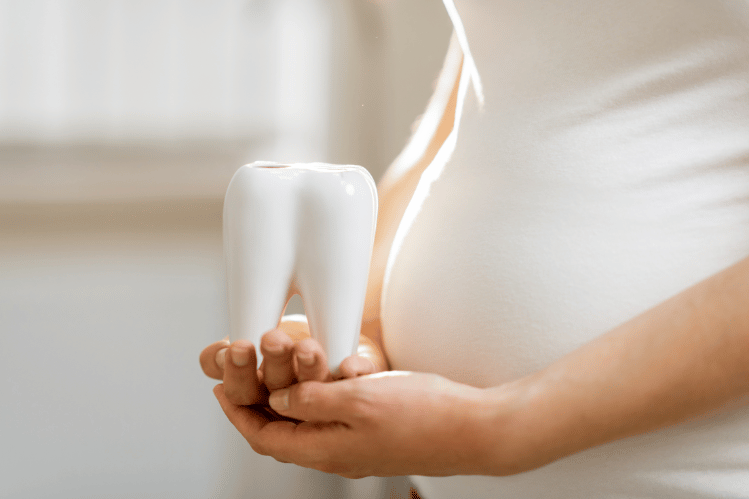
Pregnancy is a remarkable journey filled with many physical and emotional changes, but it's not just your body that undergoes transformations. Surprisingly, your oral health can be significantly affected during pregnancy. This blog will explore the various ways pregnancy can impact your oral health and provide guidance on maintaining a healthy smile while expecting.
Hormonal Changes and Gum Health
Pregnancy is often accompanied by hormonal shifts, notably increased levels of progesterone and estrogen. These hormones can affect the gums, making them more susceptible to irritation, swelling, and bleeding. This condition, known as pregnancy gingivitis, can be managed with proper oral hygiene practices and regular dental check-ups.
Morning Sickness and Tooth Erosion
Many pregnant individuals experience morning sickness, which can expose teeth to stomach acids. Repeated exposure to these acids can erode tooth enamel, leading to tooth sensitivity and an increased risk of cavities. To minimize erosion, rinse your mouth with water after vomiting and wait at least 30 minutes before brushing your teeth.
Pregnancy Tumors
Though not true tumors, these small, raspberry-like growths on the gums can appear during pregnancy, often in the second trimester. These are typically benign and painless, but if they cause discomfort, consult your dentist for possible removal.
Dental Care During Pregnancy
It's crucial to maintain good oral hygiene during pregnancy. This includes brushing your teeth at least twice a day, flossing daily, and using an alcohol-free mouthwash. Regular dental check-ups are essential, and it's safe to have dental cleanings and some necessary treatments during pregnancy.
Nutritional Needs
A balanced diet is essential for both your health and your baby's. Make sure to include a variety of foods rich in calcium, vitamin D, and other nutrients that support strong teeth and bones.
Avoid X-Rays and Elective Dental Procedures
Unless it's an emergency, elective dental procedures and X-rays should generally be postponed until after the baby is born. However, if you have a dental emergency, inform your dentist that you're pregnant so they can take the necessary precautions.
After Delivery
Pregnancy can leave you more susceptible to gum disease. After giving birth, it's essential to continue proper oral hygiene practices and schedule a dental check-up to address any oral health issues that may have arisen during pregnancy.
Conclusion
Pregnancy is a beautiful and transformative time, but it's important to remember that your oral health can be affected. By maintaining good oral hygiene, staying informed about these potential changes, and seeking regular dental care, you can safeguard your smile and focus on the joy of bringing a new life into the world.
FAQs
Can I have dental X-rays during pregnancy if it's an emergency?
In most cases, dental X-rays should be avoided during pregnancy, even in emergencies. However, if an X-ray is necessary, your dentist can take precautions to minimize radiation exposure.
Is it safe to have dental cleanings while pregnant?
Yes, it's safe to have dental cleanings during pregnancy. In fact, maintaining good oral hygiene and having regular cleanings is important for your overall health and the health of your baby.
How can I alleviate pregnancy gingivitis symptoms?
To alleviate pregnancy gingivitis symptoms, maintain a consistent oral hygiene routine, including regular brushing, flossing, and using an alcohol-free mouthwash. If symptoms persist, consult your dentist.
Can I undergo elective dental procedures during pregnancy, like teeth whitening?
Elective dental procedures, such as teeth whitening, are generally best postponed until after pregnancy. It's advisable to consult with your dentist regarding any elective treatments during this time.
What should I do if I experience tooth sensitivity due to morning sickness?
If you experience tooth sensitivity due to morning sickness, rinse your mouth with water after vomiting and wait at least 30 minutes before brushing your teeth. This can help reduce the risk of enamel erosion.

